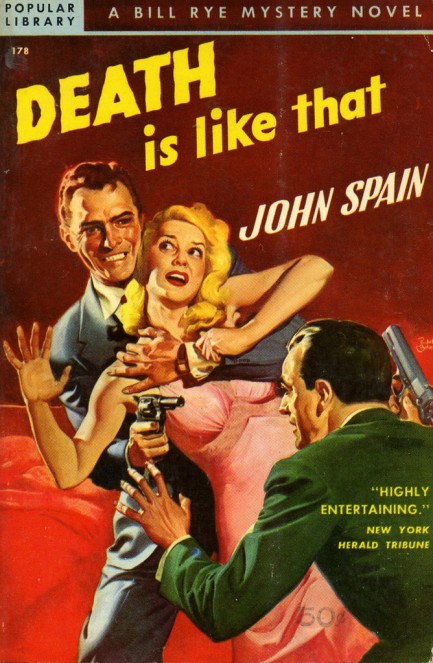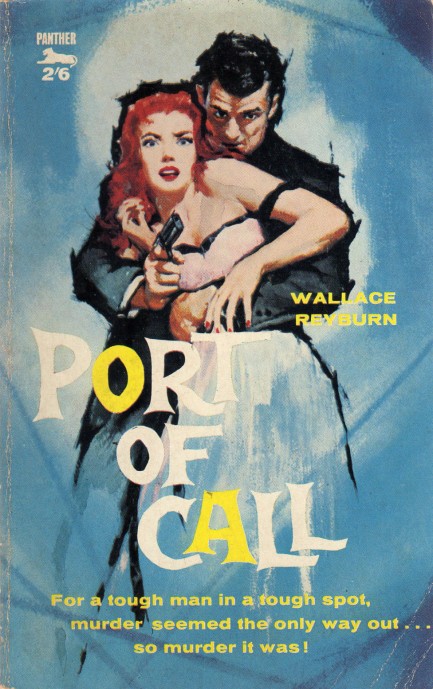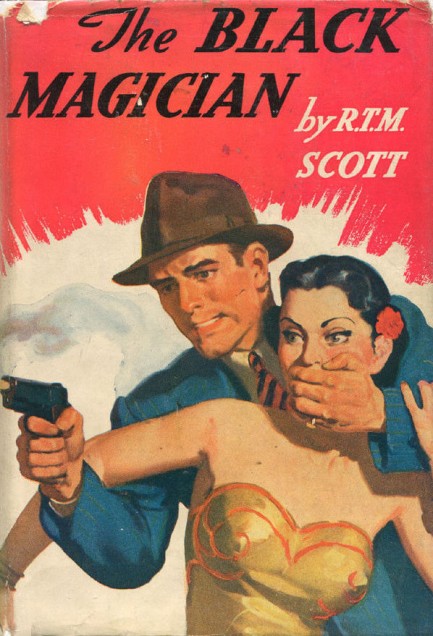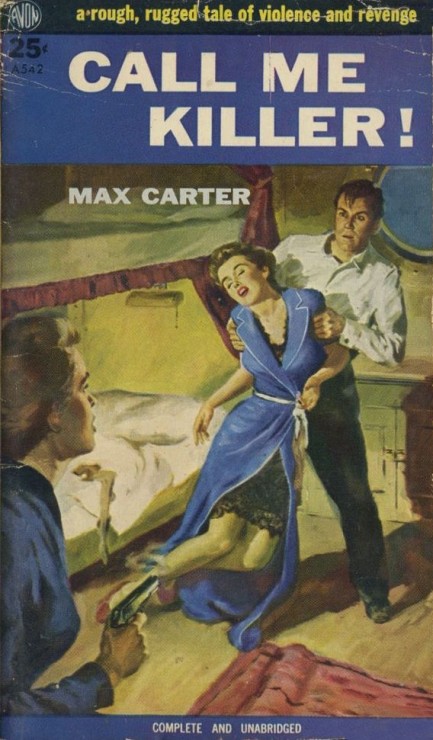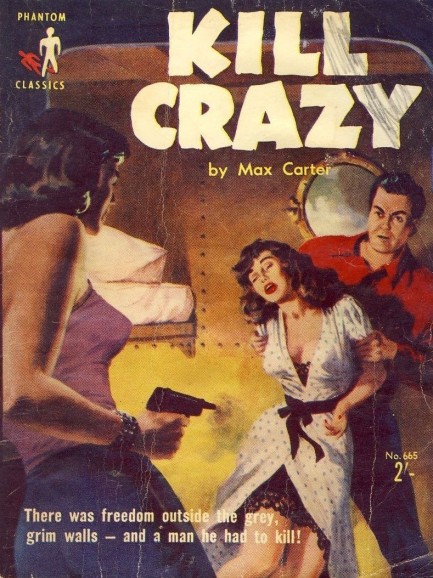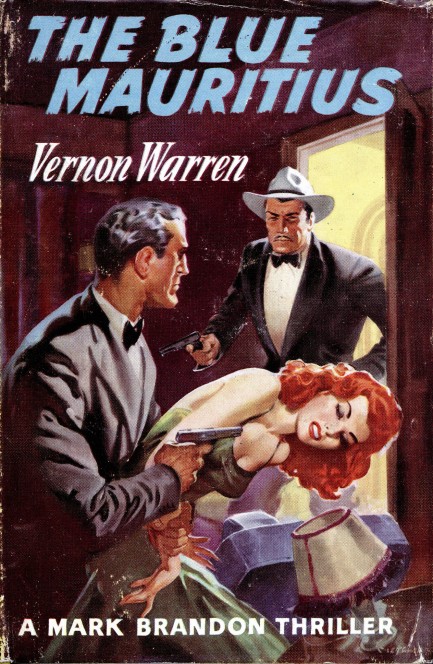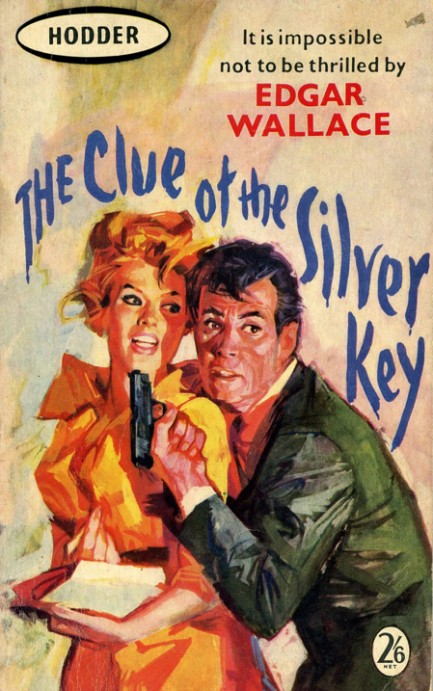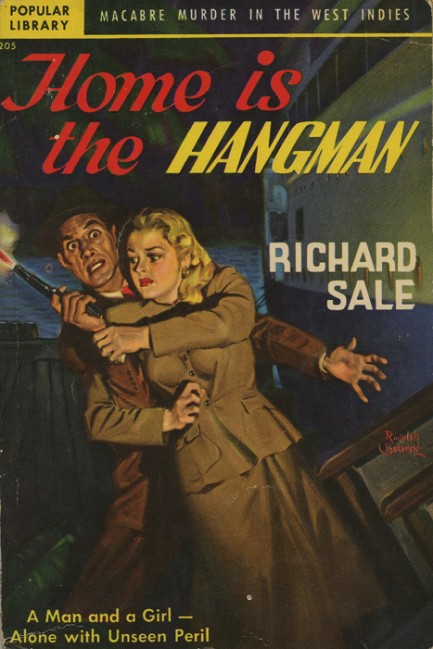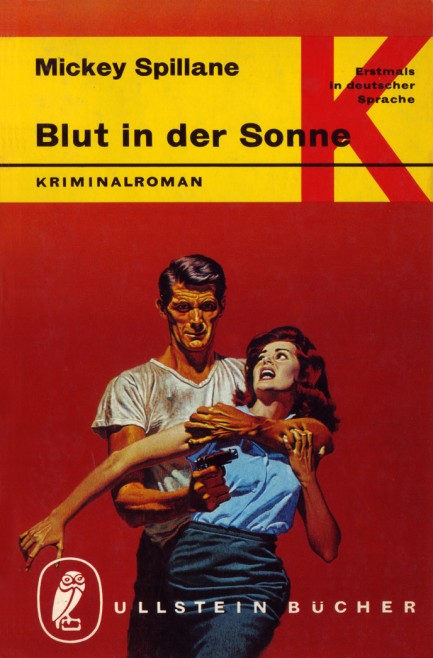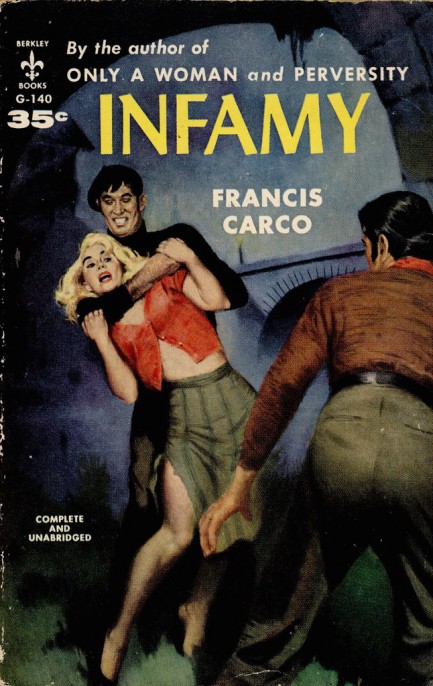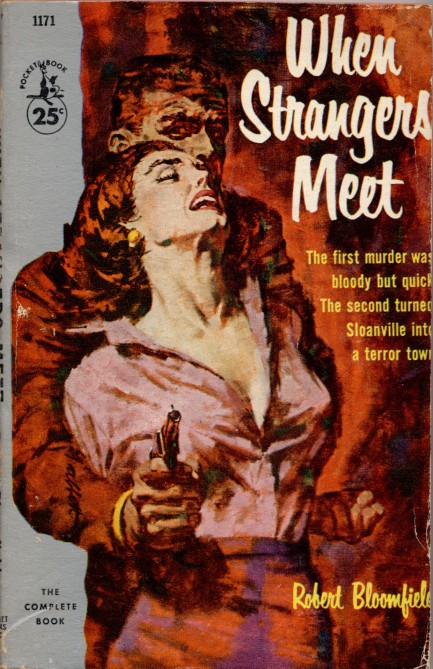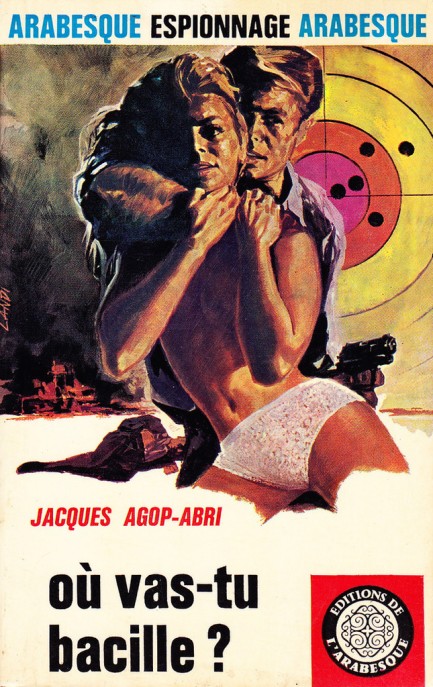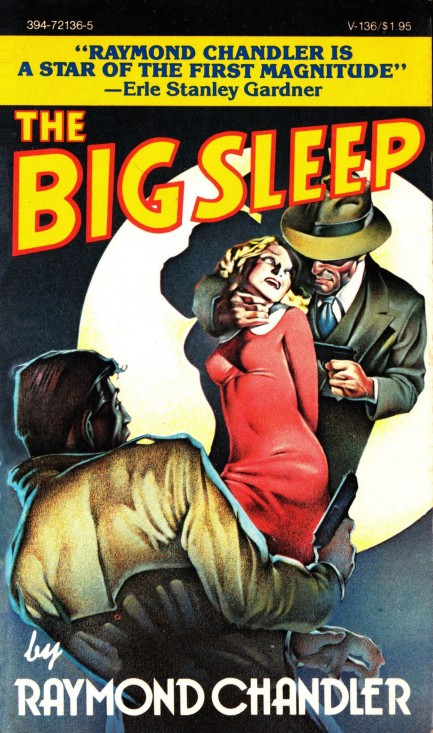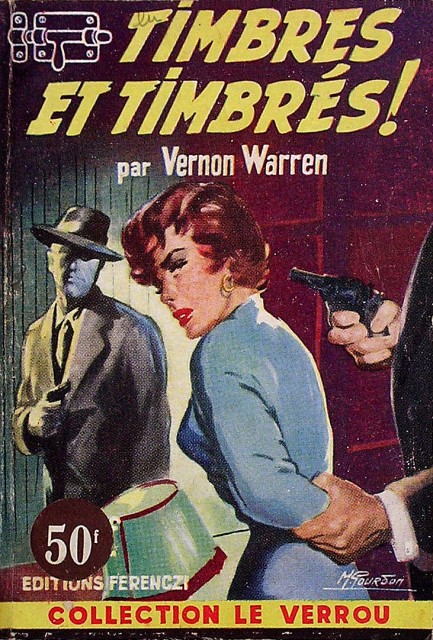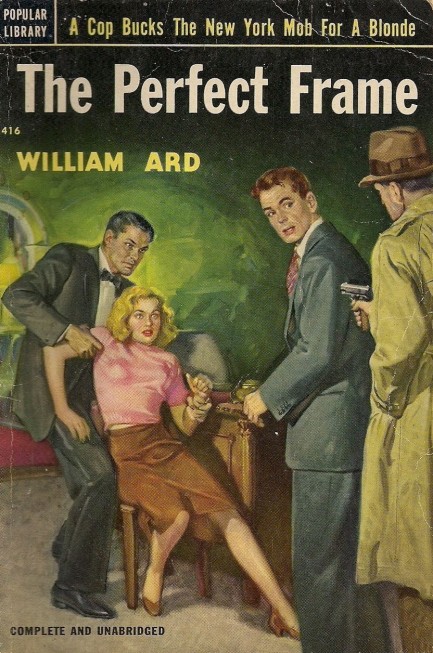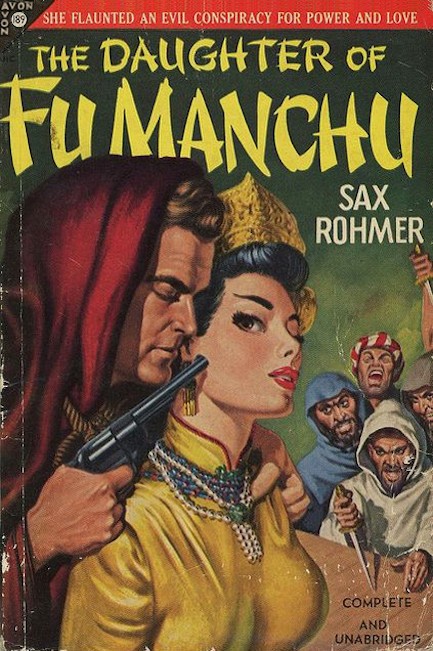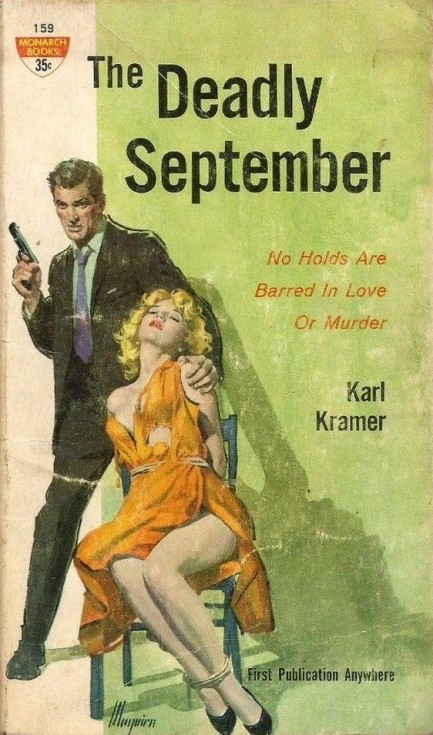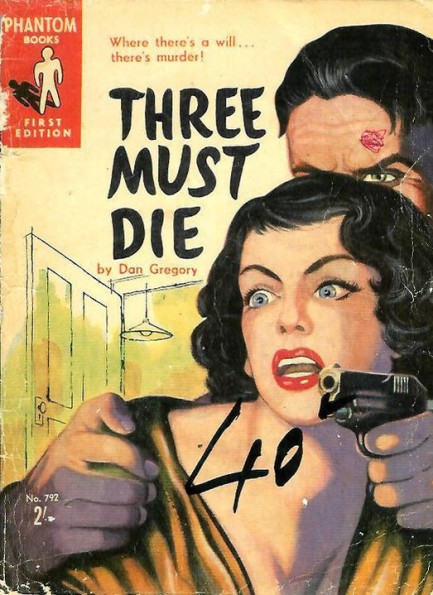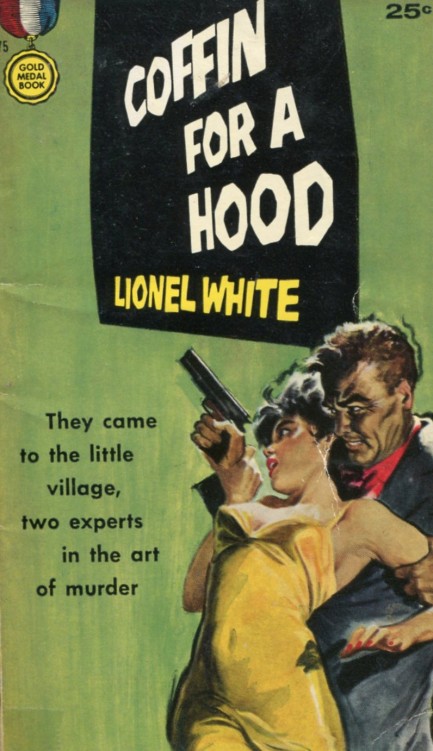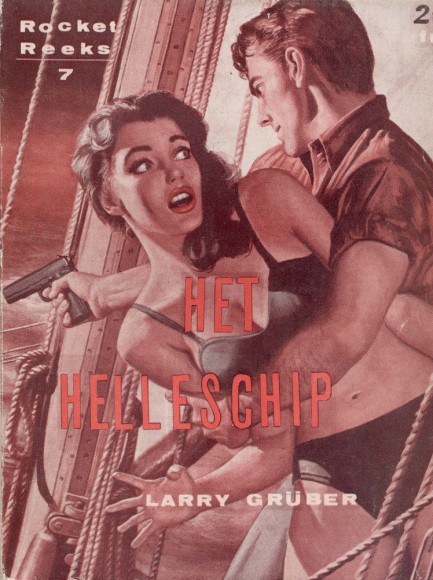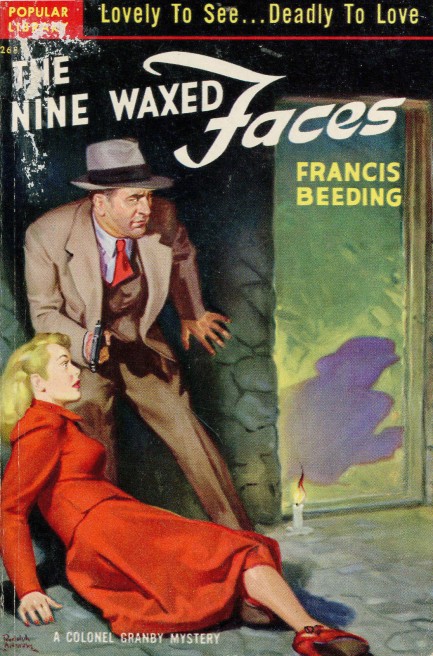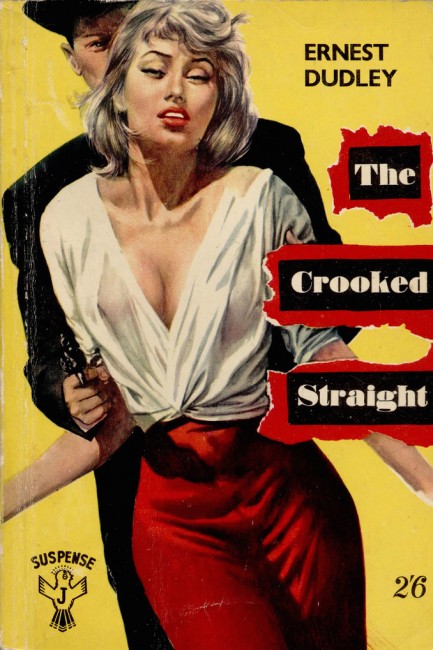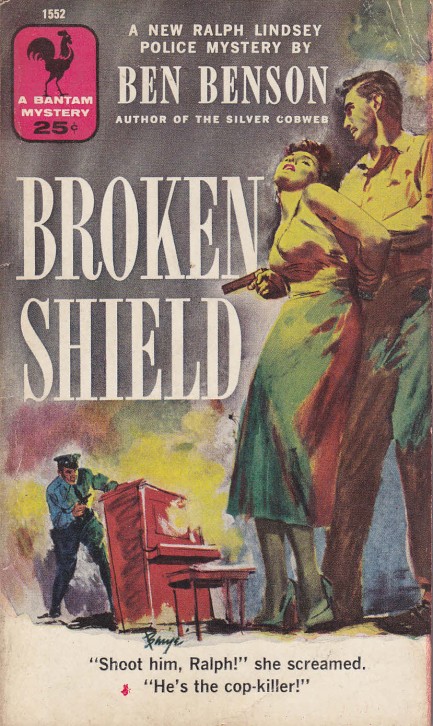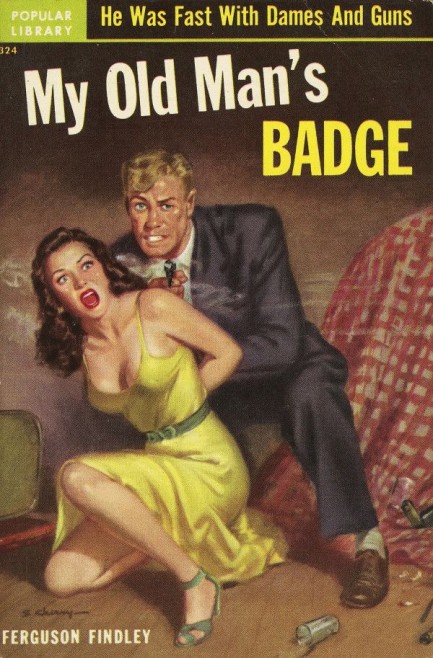 For a fulfilling killing nothing beats a blade. 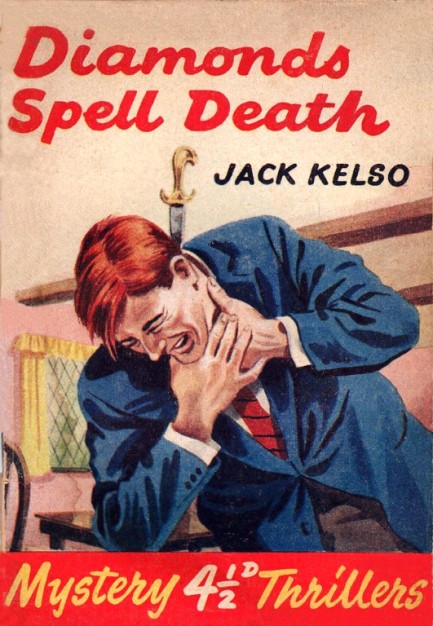
Today we have for your pleasure a collection of vintage paperback covers featuring characters on both the giving and receiving ends of knives—or knifelike tools such as icepicks. Above you see Harry Bennett art of a poor fella getting a knife from nowhere. Maybe Damocles did it. It's a funny cover because we don't think we'd grab our throats if we got stabbed in the spine, but let's hope we never find out. Below, in addition to numerous U.S. and British offerings, you'll see covers from France, Italy, Spain, and the Netherlands. There are many, many paperback fronts featuring knives—we mean hundreds—but we decided to stop ourselves at thirty-two today. These do not represent the best (as if we could decide something like that), or our favorites, but merely some interesting ones we've come across of late. If you're super interested in this particular motif we have plenty more examples in the archives. They'd be hard to find, because we don't keyword for knives, so here are some links to get you there: 1, 2, 3, 4, 5, 6, 7, 8. 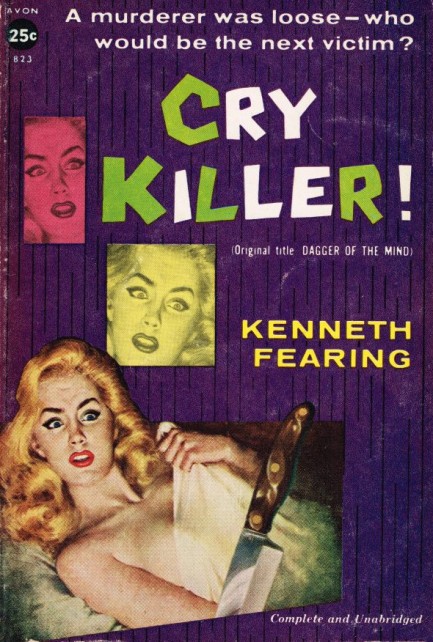 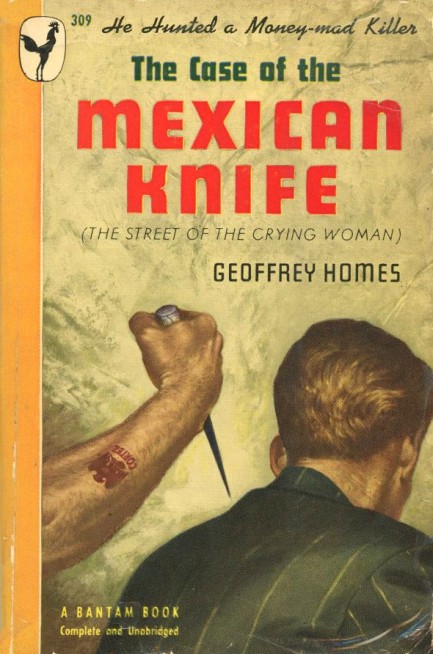 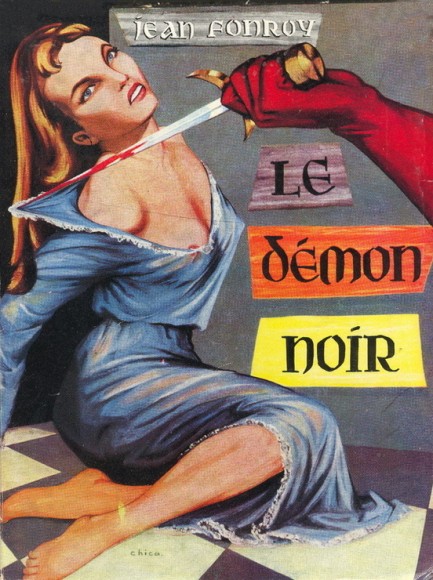 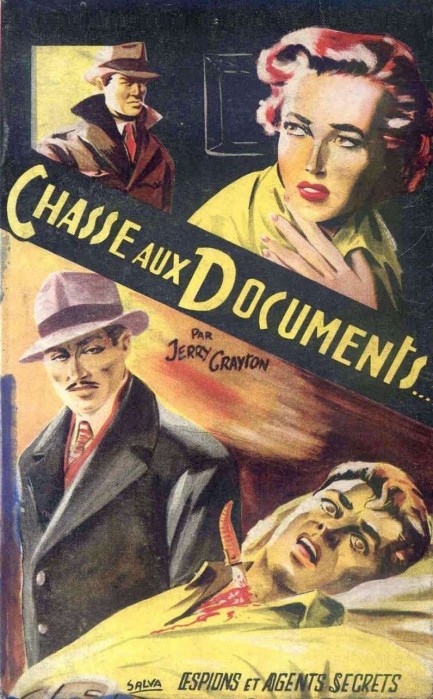 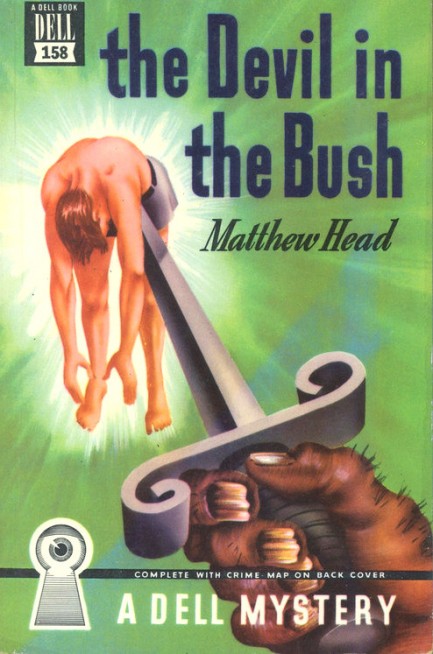 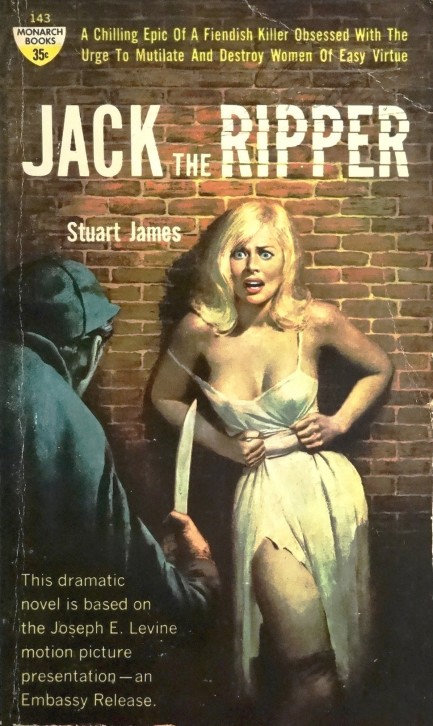  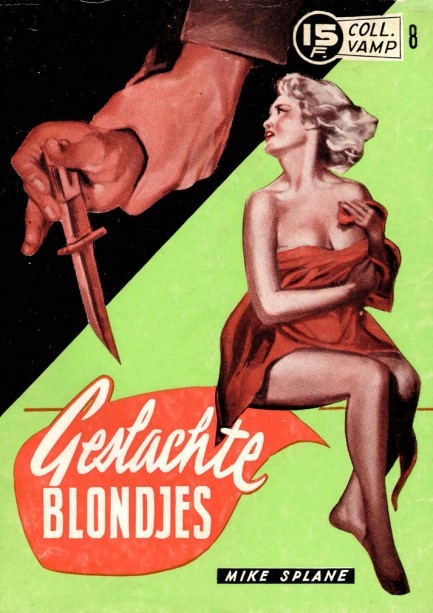 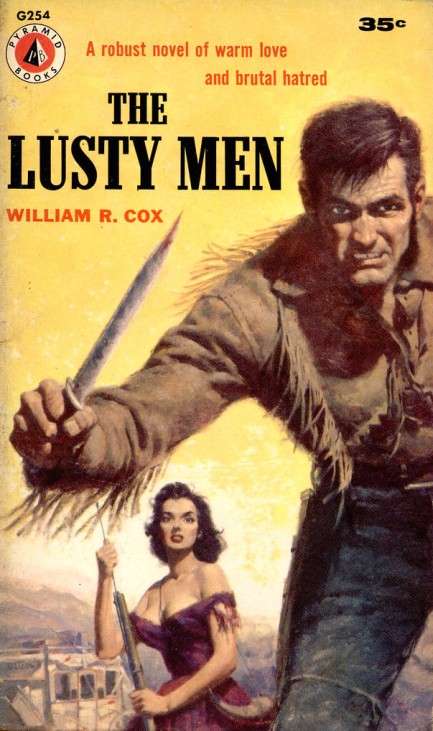 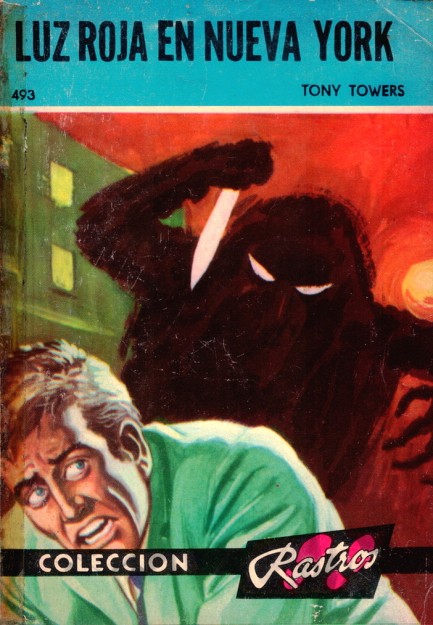 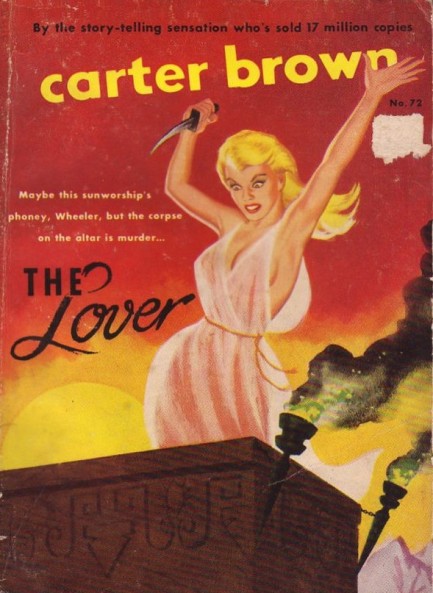 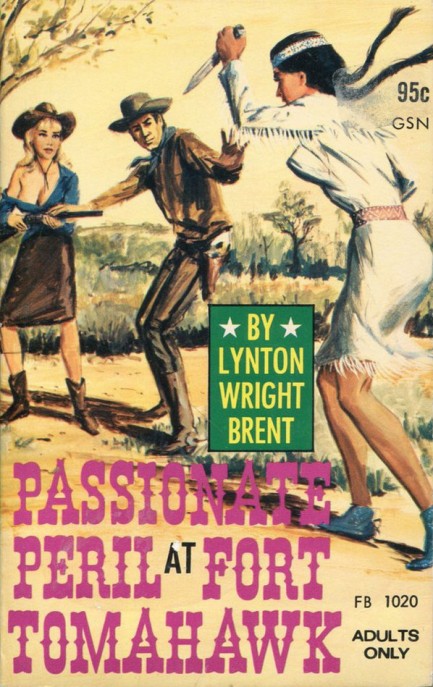 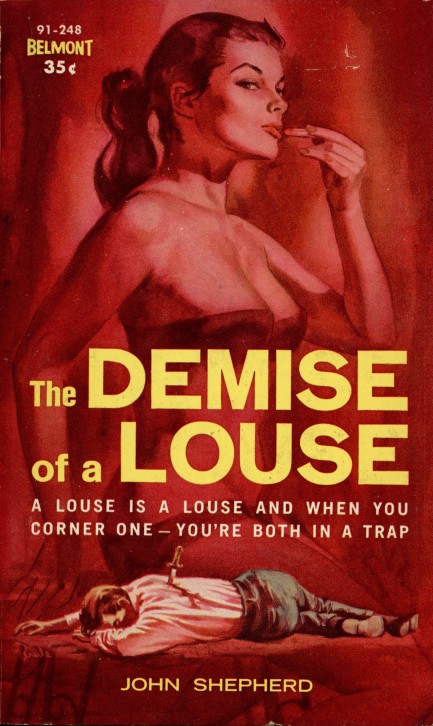 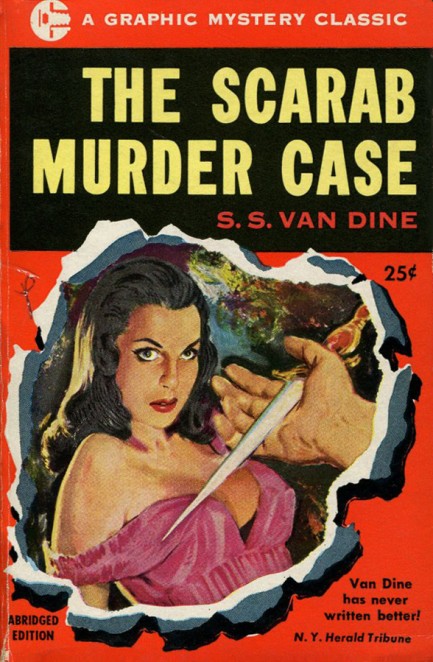 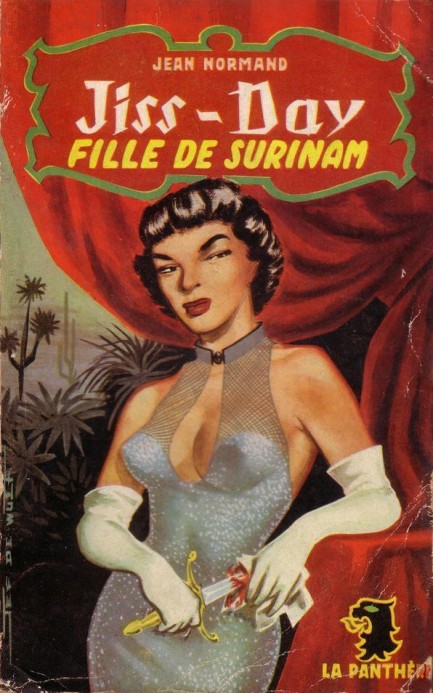 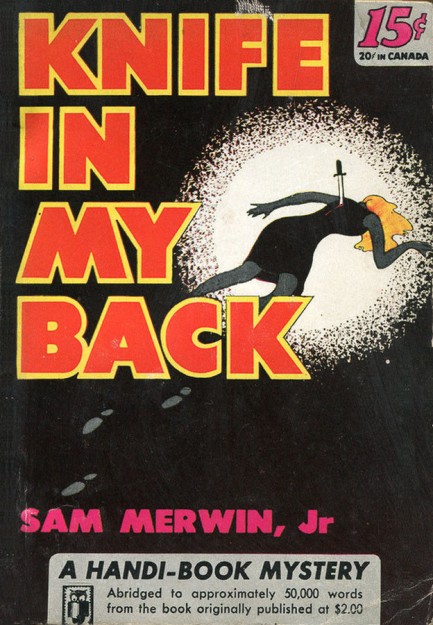 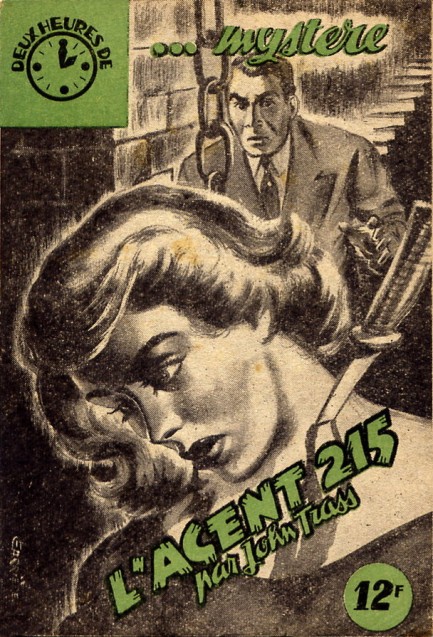 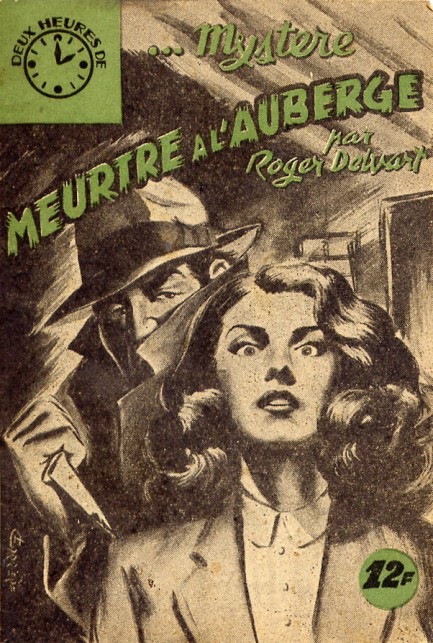 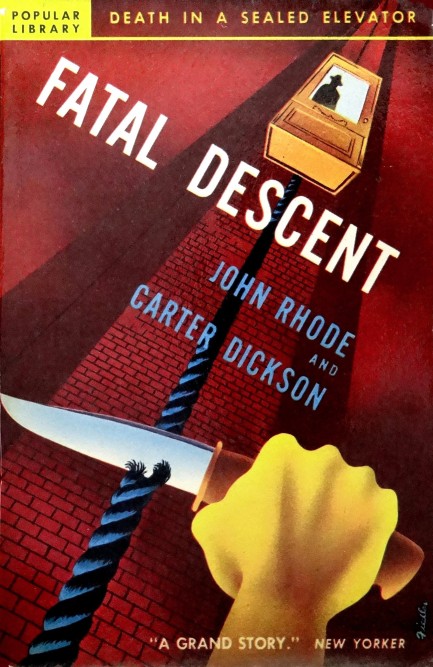 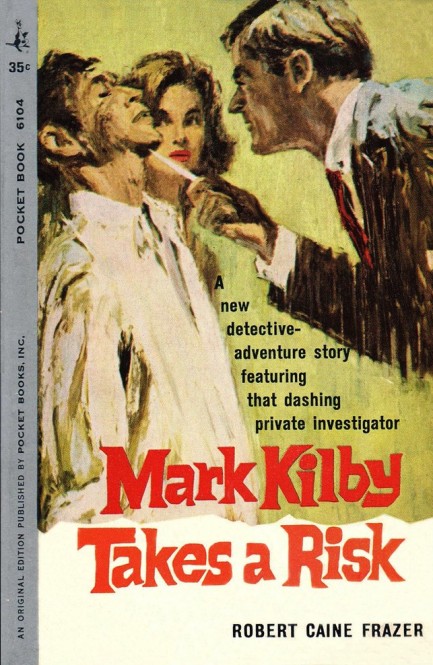 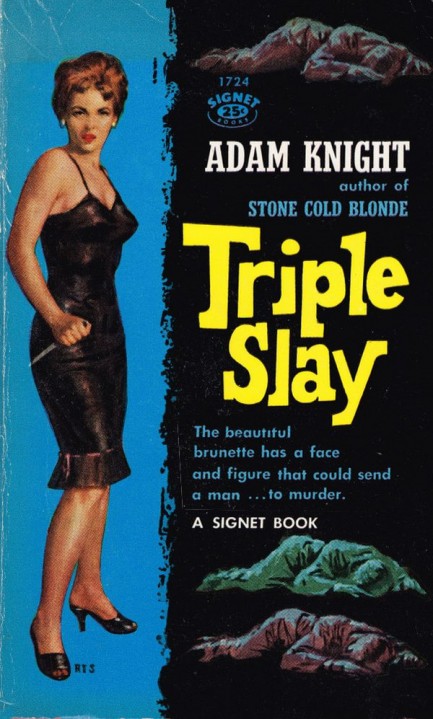 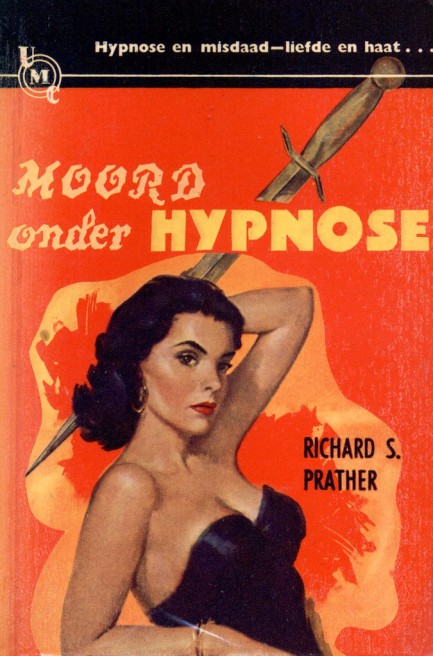 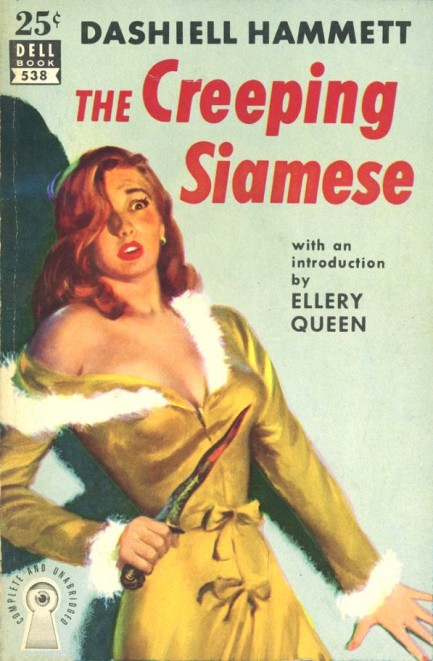 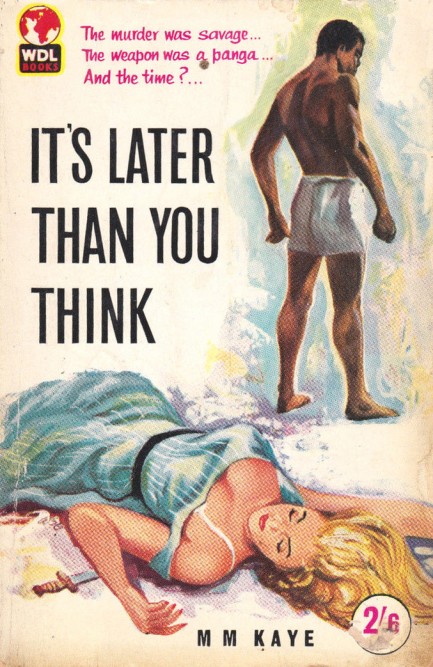 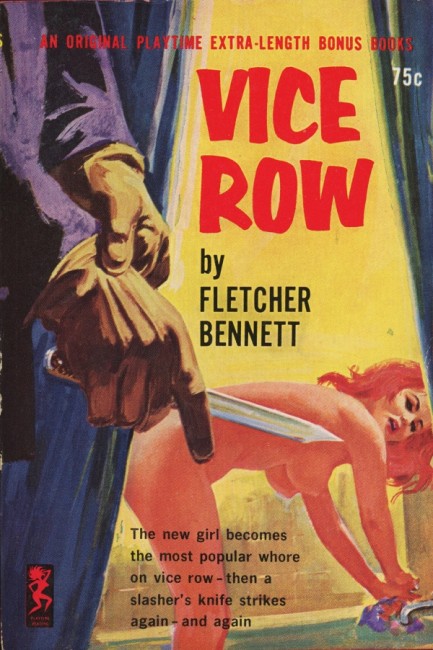  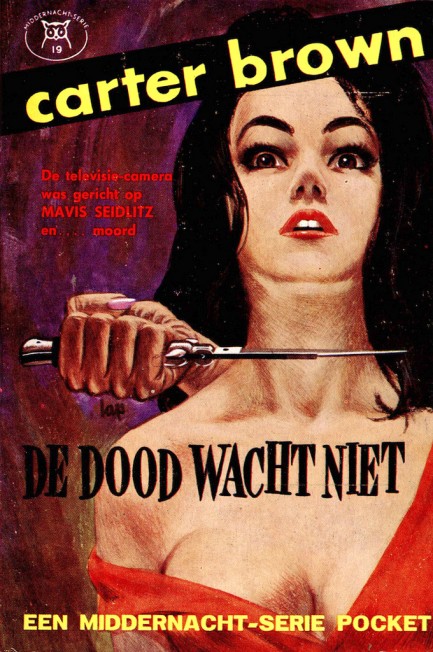 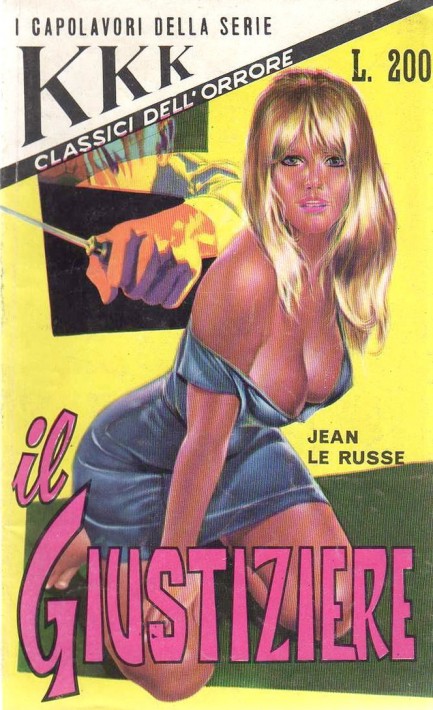 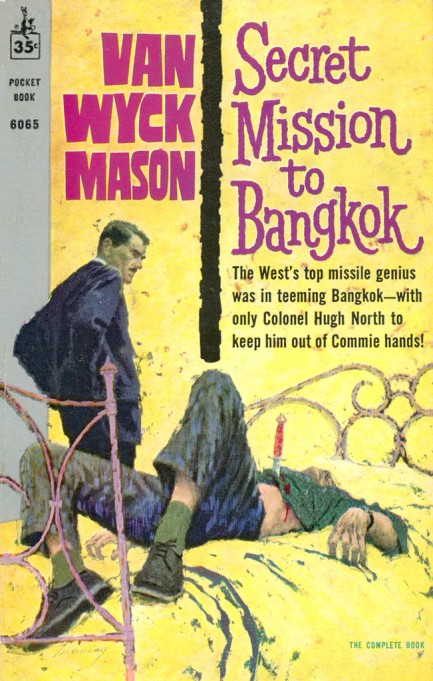 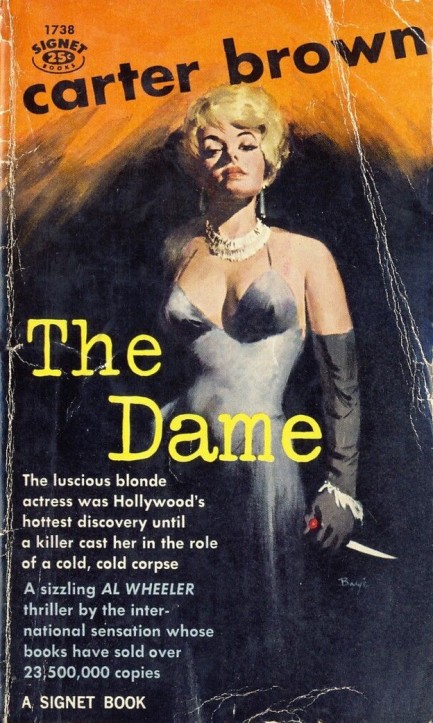 
 So when you sang “You're So Vain,” the song really was about me, wasn't it? 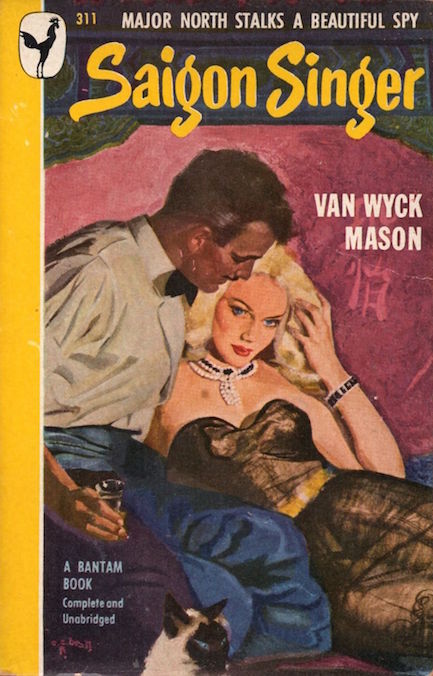
This is top work from artist C.C. Beale on this cover for Van Wyck Mason's Saigon Singer, especially the small elements of the background writing on the wall and the Siamese cat in the foreground. The singer of the title—who never performs “You're So Vain,” sadly—is Pamela Saunders, a former prisoner in a Japanese internment camp who survives filth and near starvation to resurrect herself as singer in Saigon. Along the way she becomes known as Black Chrysanthemum before adopting the stage name Xenia Morel. Her transformation is interesting, but the star of the story is Major Hugh North, who turns up in Saigon looking for a dossier containing the names of British and American traitors who during the war sold secrets to a Japanese general. Saunders-Chrysanthemum-Morel survived the prison camp by becoming the mistress of the general, and it's due to this close association that she possesses the dossier. She'll give it to North, but only if he pays her enough money to get to Paris, where she wants to continue her singing career.
Mason knew this part of the world and uses his knowledge well in writing of Saigon social life, oppressive heat, scented baths, tiger hunts, French legionnaires, and other you-had-to-be-there aspects of post-World War II Vietnam. As number thirteen in a series of exotic Hugh North mysteries (others were set in Singapore, Burma, Manila, Bangkok, et al) we sense a formula here, but in the end we liked it despite the usual flaws of colonialist fiction, and we were envious of Mason for having travelled in that part of the world during that time, and having been lucky enough to make a career of writing about it. Well, maybe we can't complain too much—we've hit some good spots too. And we write, though we get fuck-all for it. In any case, this particular discovery makes us curious about earlier Mason books, so maybe we'll check out some of his Hugh North adventures. Saigon Singer was originally published in 1946, and the above edition is from 1948.
 Please let me go! I’m not even in this book! 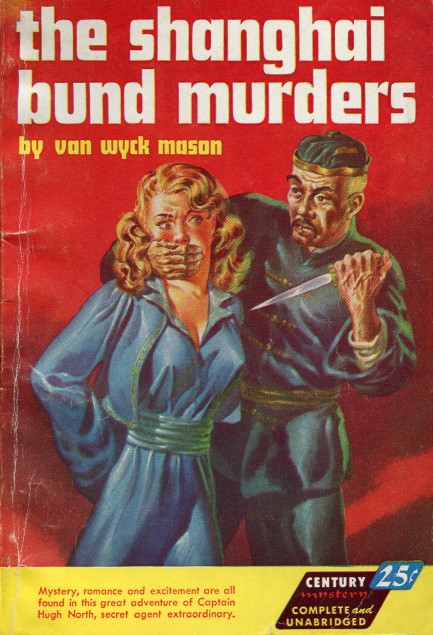
Originally published in 1933, with this Century Publications paperback appearing in 1946, Van Wyck Mason’s The Shanghai Bund Murders was seventh in a series of twenty-six mostly similarly titled thrillers such as The Hongkong Airbase Murders, The Sulu Sea Murders, and—no one-trick-pony Mr. Mason—The Budapest Parade Murders, because murder happens even outside Asia. All of these starred his spy creation Hugh North, and here Hugh finds a coin—previously carried by an agent who suffered an early demise—that is engraved with a coded message about Chinese military secrets. You get pro forma anti-commie stuff, but the real villains here are western gunrunners. The excellent cover art, which is not related to the text, is by Malcolm Smith.
 Vintage literature reminds us that murder, deceit, betrayal, lust and greed know no boundaries. 
There’s a saying that the world is a book and those who don’t travel read only one page. But on the other hand, if you stay home the danger and mayhem at least happen in your own language. Which is the better course? Pulp authors seem to think it’s the latter. Above and below are twenty-one vintage bookcovers for fiction set in various cities around the globe. The writing spans genres such as romance, sleaze, horror, and espionage, and the art is by Mitchell Hooks, Barye Phillips, Robert McGinnis, et. al. Thanks to all the original uploaders.
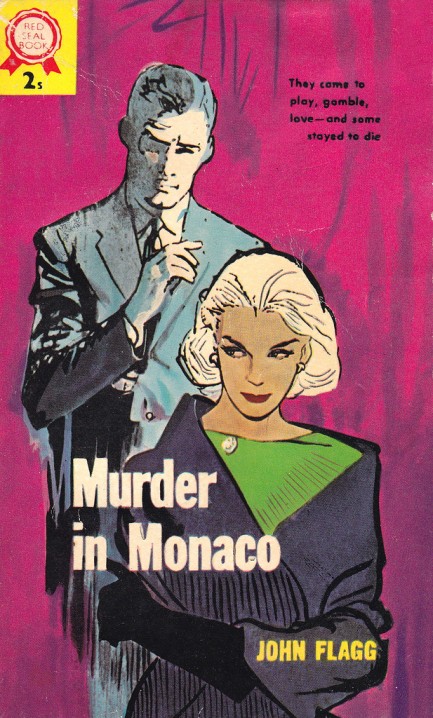 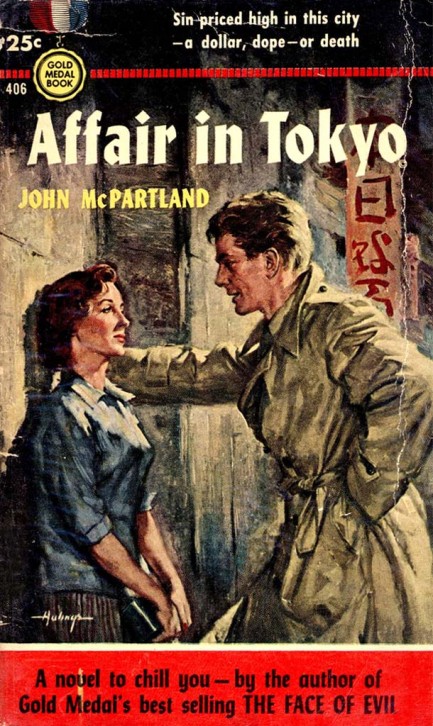 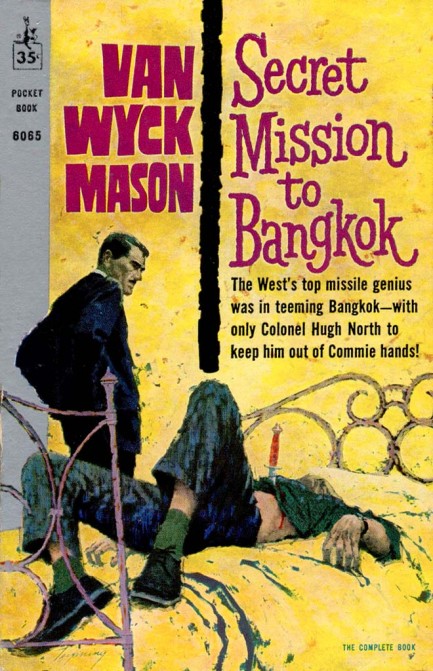 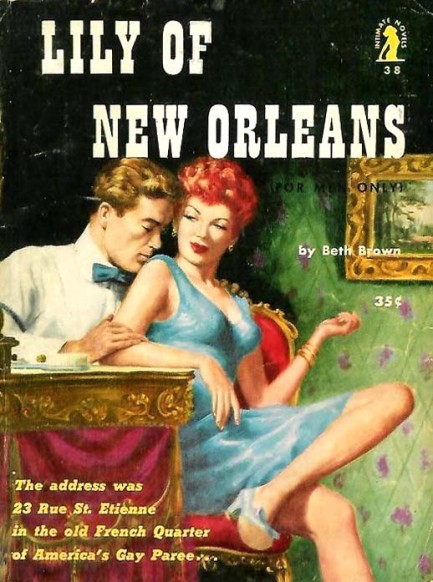 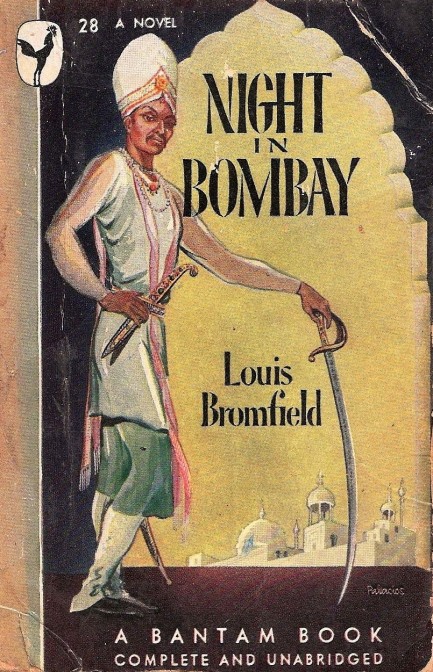 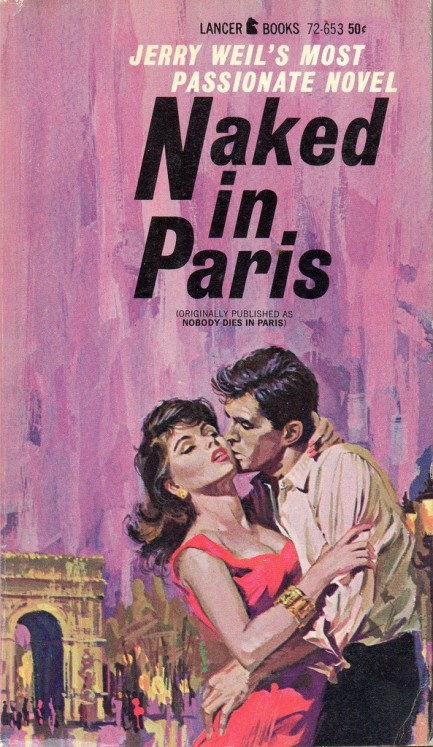 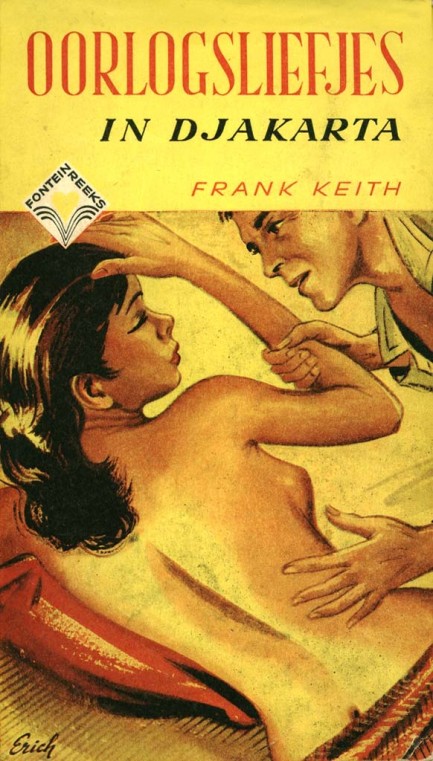 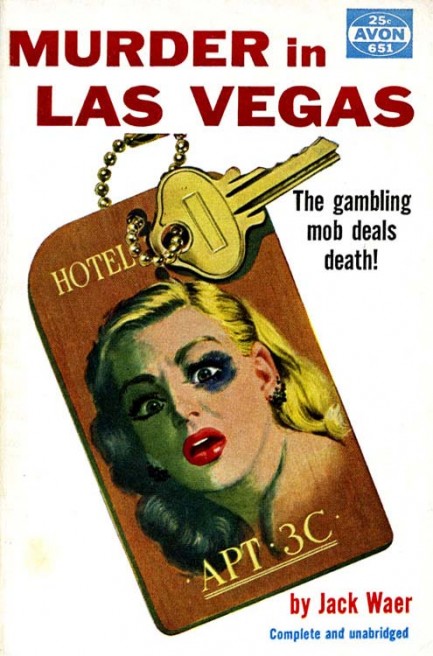 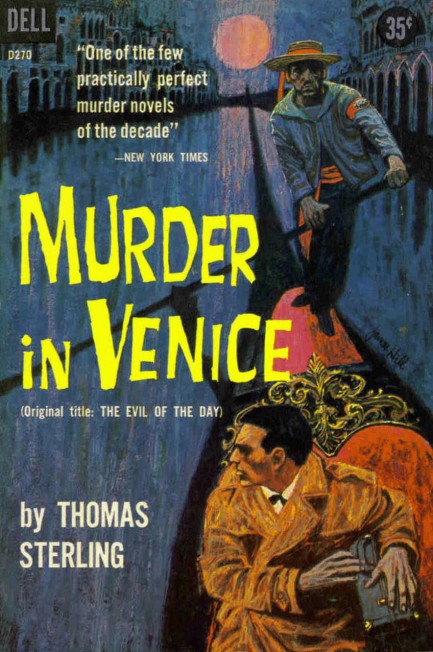 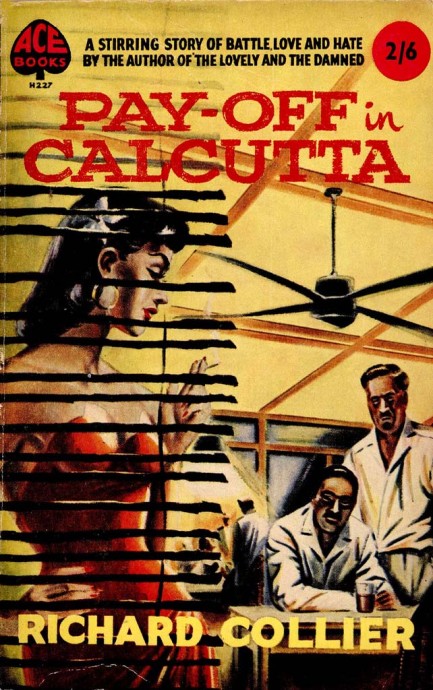  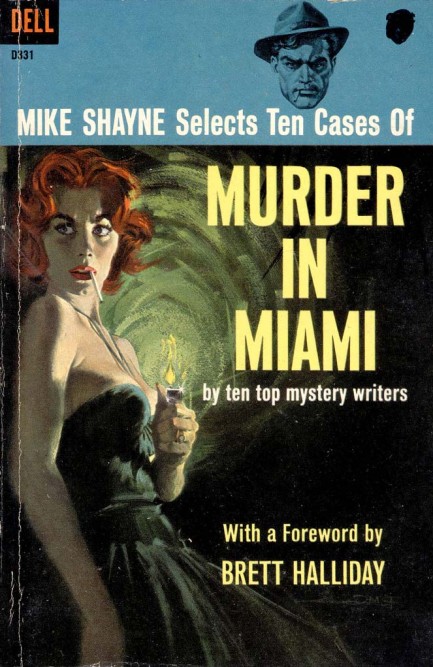 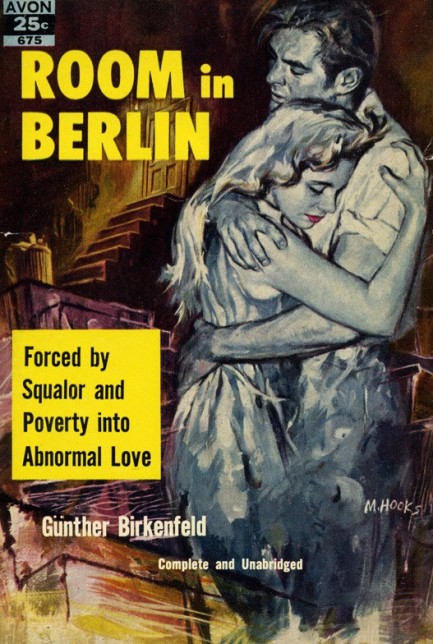  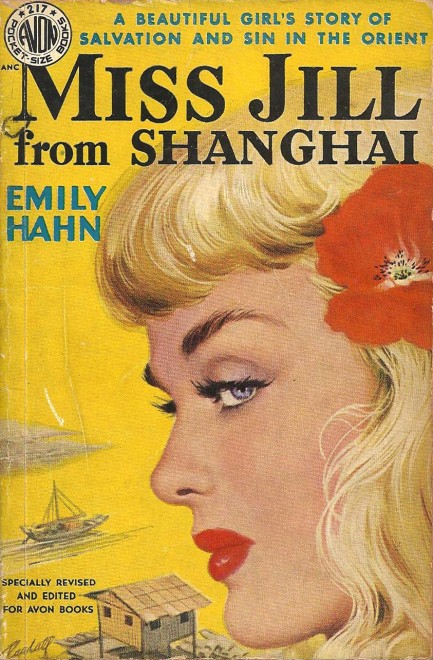  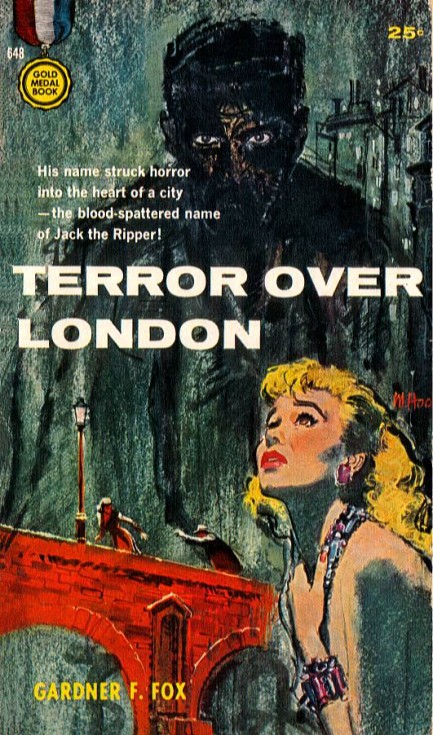 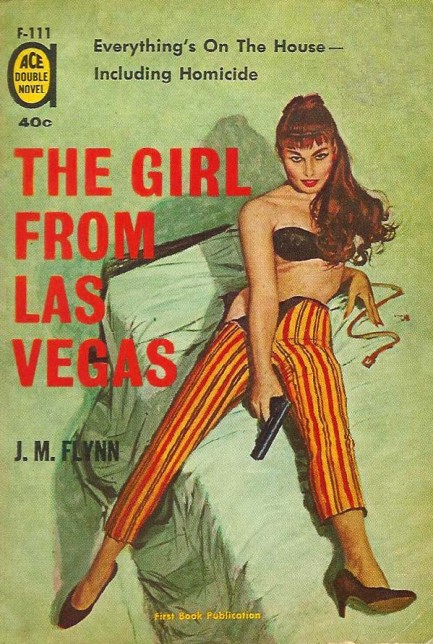 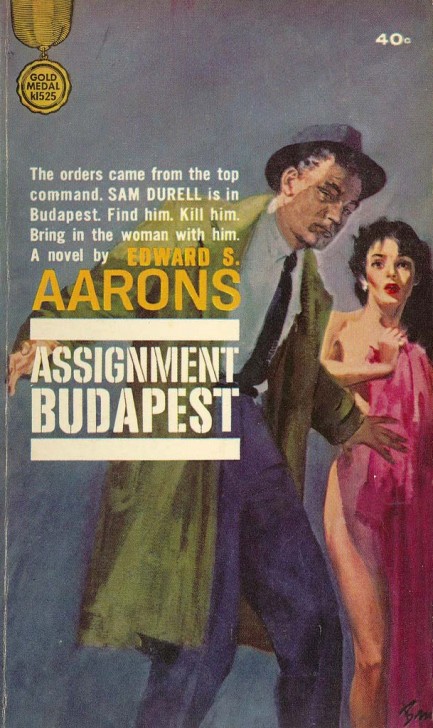 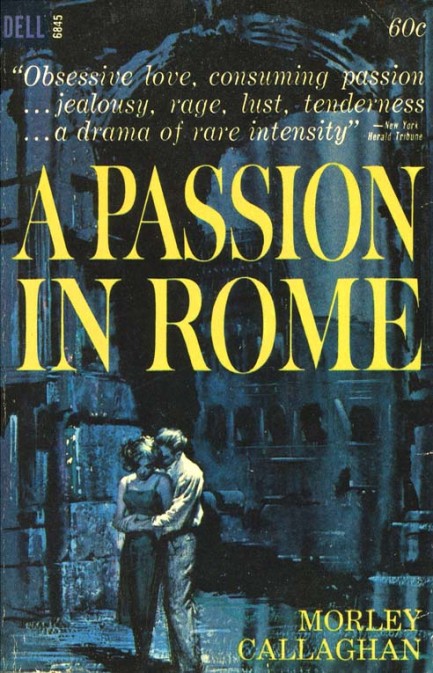
|
 |

The headlines that mattered yesteryear.
2003—Hope Dies
Film legend Bob Hope dies of pneumonia two months after celebrating his 100th birthday. 1945—Churchill Given the Sack
In spite of admiring Winston Churchill as a great wartime leader, Britons elect
Clement Attlee the nation's new prime minister in a sweeping victory for the Labour Party over the Conservatives. 1952—Evita Peron Dies
Eva Duarte de Peron, aka Evita, wife of the president of the Argentine Republic, dies from cancer at age 33. Evita had brought the working classes into a position of political power never witnessed before, but was hated by the nation's powerful military class. She is lain to rest in Milan, Italy in a secret grave under a nun's name, but is eventually returned to Argentina for reburial beside her husband in 1974. 1943—Mussolini Calls It Quits
Italian dictator Benito Mussolini steps down as head of the armed forces and the government. It soon becomes clear that Il Duce did not relinquish power voluntarily, but was forced to resign after former Fascist colleagues turned against him. He is later installed by Germany as leader of the Italian Social Republic in the north of the country, but is killed by partisans in 1945.
|

|
|

It's easy. We have an uploader that makes it a snap. Use it to submit your art, text, header, and subhead. Your post can be funny, serious, or anything in between, as long as it's vintage pulp. You'll get a byline and experience the fleeting pride of free authorship. We'll edit your post for typos, but the rest is up to you. Click here to give us your best shot.

|
|




































